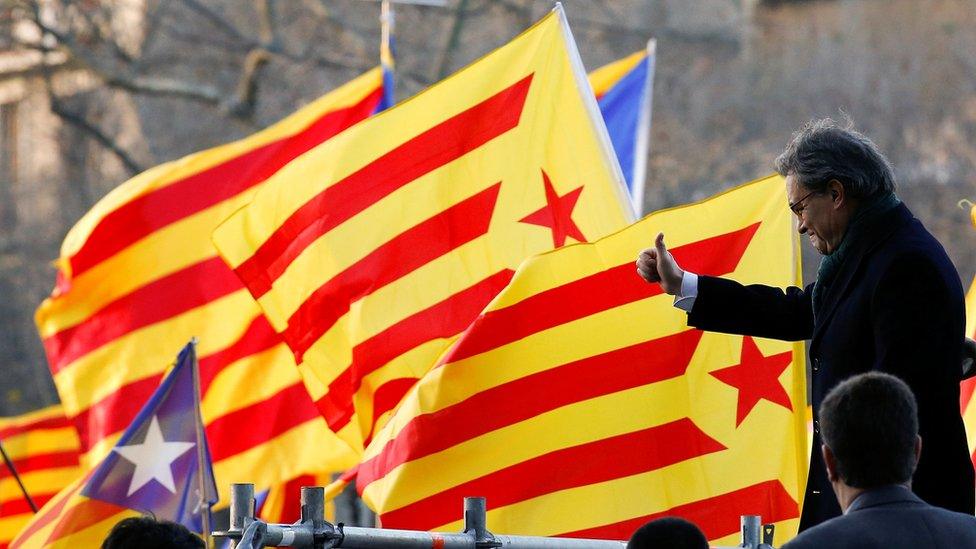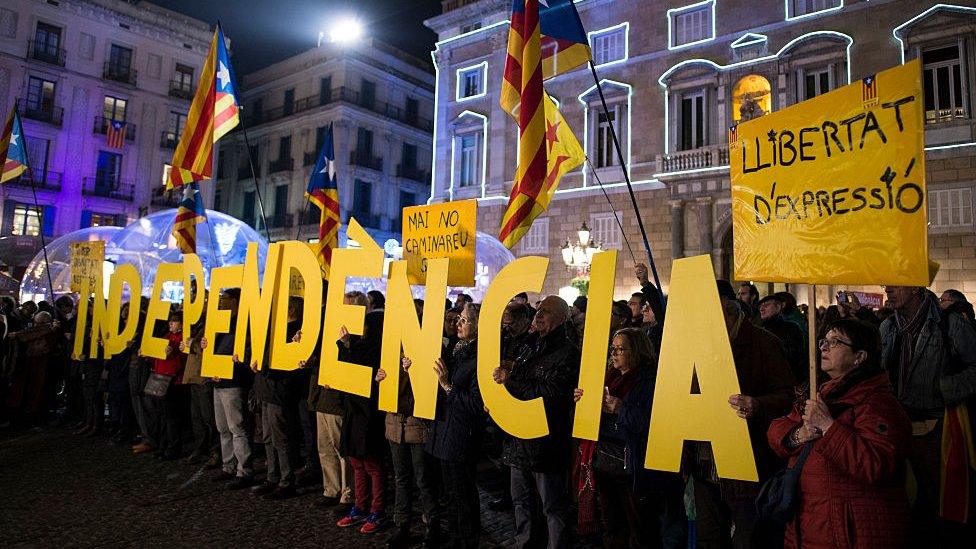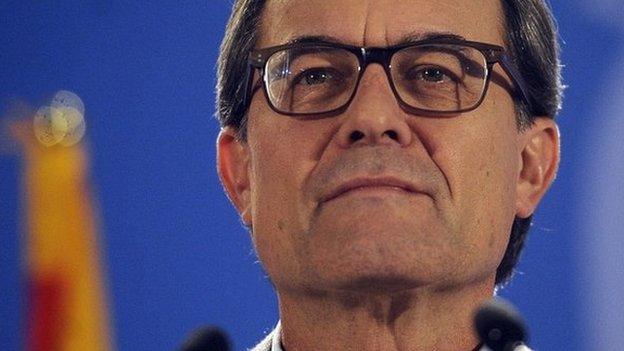Catalan trial: Artur Mas independence vote case draws crowds
- Published

Mr Mas told supporters he would hold the vote again if circumstances allowed
Thousands of supporters filled the streets outside a court in Barcelona on Monday as the former Catalan president Artur Mas went on trial.
Accused of serious civil disobedience over Catalonia's unofficial 2014 independence vote, Mr Mas said he took full responsibility for the "political initiative".
The vote went ahead despite an order from Spain's constitutional court.
Prosecutors are calling for him to be disqualified from office for 10 years.
Mr Mas, his deputy Joana Ortega, and Catalan former education minister Irene Rigau face accusations ranging from disobedience and perverting the course of justice to misuse of public funds.
Catalan trial: Crowds support Artur Mas in independence vote case
Large crowds appeared outside the court in Barcelona on Monday chanting "you are not alone", "democracy is not a crime" and "independence".
The case is being used by pro-independence supporters to galvanise their campaign. The current Catalonia government has promised to hold a new vote in September.

Read more

The 9 November 2014 vote, which was not binding, went ahead despite vehement opposition from the national government, and the poll was outlawed by Spain's constitutional court.
Catalan officials say more than 80% of those who voted backed independence. However, only 2.3 million voters out of an estimated 5.4 million who were eligible took part.
Mas's court intervention
Mr Mas left it to his lawyer to answer prosecution questions but at one point during Monday's hearing said there had been no intention to break the law or disobey anyone. Although the format of the vote was changed, he said it had only ever been intended to find out the "scope and opinion of Catalonia's citizens".
He argued that the constitutional court's decision to rule against the vote days beforehand had not made clear what the legal consequences would be. "If it was so evidently a crime, how is possible the constitutional court did nothing to enforce its resolution?" he asked.
Current Catalan President Carles Puigdemont said on the eve of the trial that the countdown had begun for an independent Spanish state in Catalonia.
Like other regions in Spain, Catalonia already has the power to run its educational and healthcare systems, as well as limited freedoms in the area of taxation.
Catalonia is one of Spain's richest and most highly industrialised regions, and also one of the most independent-minded.
With a distinct history stretching back to the early Middle Ages, many Catalans think of themselves as a separate nation from the rest of Spain.
- Published13 January 2017

- Published22 December 2014
